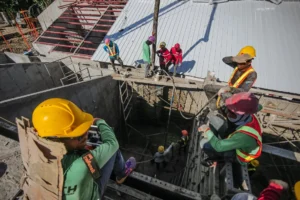
If you’re looking to have your documents notarized in a streamlined and efficient manner, you may want to consider utilizing a remote online notary service. This can save you time and money, while providing you with the convenience and security of having your documents notarized at the click of a button.
Paperless notarization saves space and costs
One of the best ways to save money and space is by using paperless notarization. This technology is not available in all jurisdictions. However, it is gaining popularity. It also has the chance of making the process more efficient.
Several states have implemented some sort of electronic notarization solution. They also have regulations that limit how long journals can be stored. If you are in the business of selling or loaning money, you might want to get on board the electronic train early. For example, a few years back, the Virginia state legislature enacted a law that made electronic notarization a viable option in the state.
The best part is that paperless notarization is not all that expensive. Although there are some drawbacks, namely the lack of face-to-face interaction, you can save a bundle on paper and ink. A study done on the topic in California found that a paperless notarization process resulted in savings of $1,500,000.
Convenience
If you’ve ever had to notarize a document, you know how tedious and time-consuming it can be. Even if you’re not a notary, you may have had to notarize documents on the phone or in person.
Remote online notary services make notarization more convenient. Notaries and signers can schedule appointments on the web, and the Notary can meet with a signer at the time that works best for them. Moreover, the Notary can record the session, which helps them comply with state RON requirements.
The process is safe and secure. The Notary uses a secure audio/video recording system to verify each signer’s identity.
Online notarization saves notaries money and time. In addition, it eliminates human error. A remote notary can complete a transaction within hours. They can even work with clients in other states.
DocuSign is an example of a remote online notary service. DocuSign provides Notaries with an end-to-end document management platform. This allows the Notary to manage all of their agreements on one platform, and to easily create and share e-signatures.
Credential analysis
The process of credential analysis is a key element of identity verification. It involves confirming that an individual’s government-issued photo ID is authentic. Using automated software or hardware processes, the signer’s identification must be scanned, and other security elements must be analyzed.
While it may seem simple, ensuring the identity of an individual is far more complex than matching a driver’s license to the name on the document. There are several layers of protection for the signer, as well as the notary.
Credential analysis for remote online notary services uses a variety of security features to ensure that a signer’s identification is real. In fact, the process is considered more secure than traditional notary services.
Notaries who use this technology are able to confirm that the signer’s government-issued photo ID is current. Once the ID is verified, the signer can flash it to the notary over a video call.
This solution also includes a database-driven authentication system, which makes the process more robust and less susceptible to fraud. To validate the identification of a signer, a notary public must verify the physical aspects of the ID as well as the information contained on the identification card.
Identity proofing
The Remote Online Notary (RON) platform offers a number of identity proofing features to increase the security of notarizations. RON uses credential analysis methods to verify the identity of the signer, and provides an audit trail of the notarization process.
Knowledge Based Authentication (KBA) is one of the most common identity proofing methods used by notaries. It asks a series of questions about the signer’s identity and background. If the answers are correct, the signer passes the authentication process. However, if the answers are not correct, the signer is required to wait 24 hours before trying again.
Another identity proofing method is the use of a valid digital certificate. This is an electronic seal that can be used as a password. Digital certificates can be stored on USB drives or secured in a traditional seal. They work like an electronic password and can be used during a remote online notarization.
Identity proofing is a crucial component of notarizations, as the National Notary Association’s survey found that over seventy percent of notaries were able to identify imposters. Many states require knowledge based authentication in order to ensure the authenticity of the signer.







